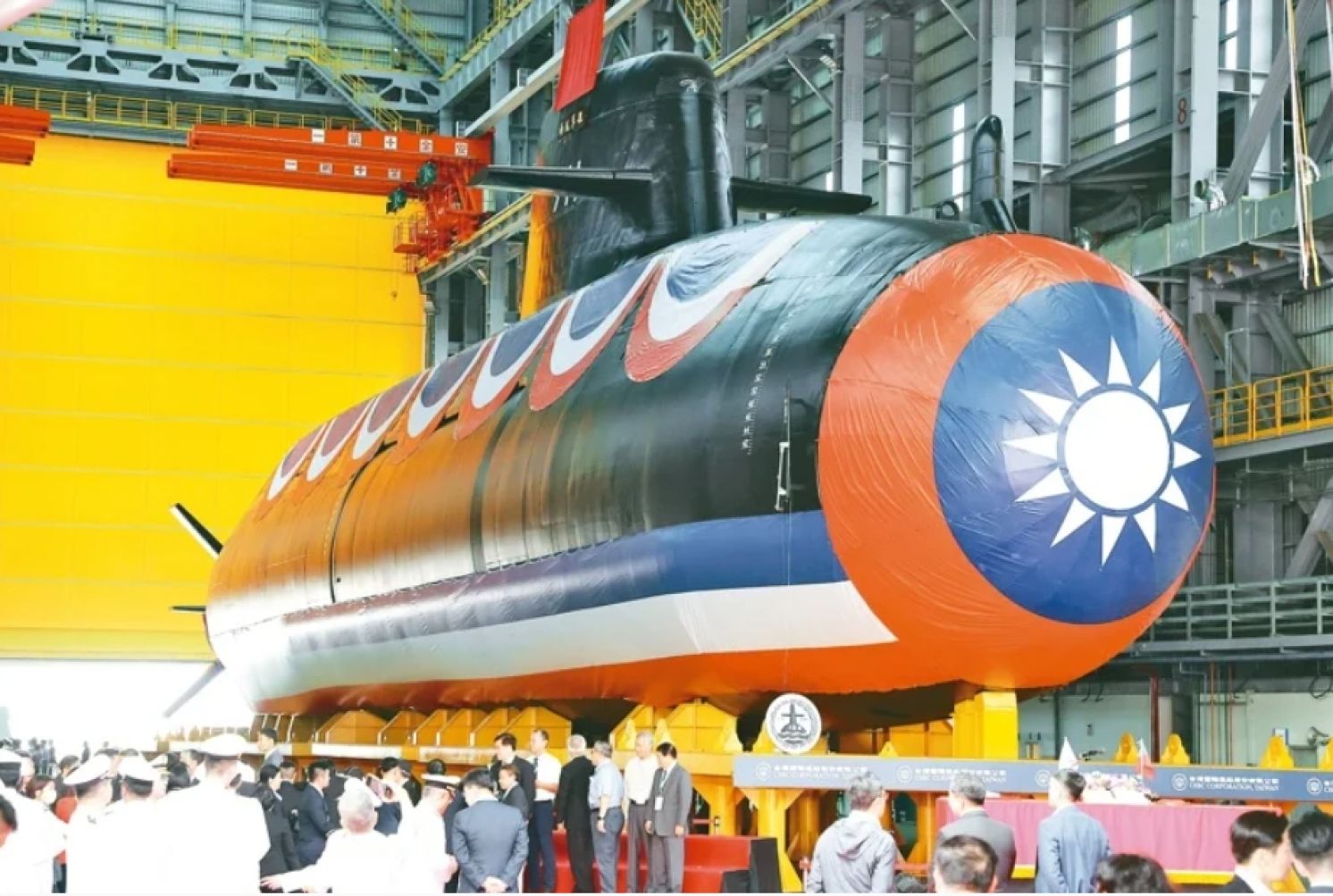
Devising Budget for Hai Kun Submarine Mass Production Before Sea Trials May Risk Serious Cost Misrepresentation
United Daily News, August 23, 2024
The central government budget for next year includes an allocation of NT$647 billion (about US$20.2 billion) for national defense. As part of this, Premier Cho Jung-tai approved a 14-year mass production budget totaling NT$284 billion (about US$8.8 billion) for the domestic submarine construction program. Next year, over NT$2 billion (about US$62.6 million) will be allocated as the initial installment. According to military expert Chung Chieh, the administration of President Lai Ching-te intends to leverage the Legislative Yuan's review of the first year's budget to secure approval for subsequent years. However, there are concerns that the budget may be inaccurate if the prototype Hai Kun-class submarine has not undergone sea trials before mass production funding is finalized.
Chieh supports the idea of domestically built submarines to enhance defense capabilities. However, he argues that the budget for mass production should be allocated gradually. It is unwise to commit a large sum to a long-term production budget before sea trials have begun and the mass production configuration has been finalized.
According to Chieh, when the Legislative Yuan handles multi-year budgets, there is a common practice that once the budget for the first year is approved, the entire budget is unlikely to be vetoed in subsequent years. Executive agencies often exploit this tactic by initially allocating only a small amount or merely covering 'administrative operating expenses,' to ensure that the overall budget for large or controversial projects is passed. He suspects that the Lai administration might be using this strategy to secure the Legislative Yuan's approval for the budget of the subsequent mass production of the domestically-built submarine, even before the prototype has completed testing.
Chieh emphasized that testing a submarine prototype is far more complex than testing a surface vessel. Given that the domestically built submarine is almost entirely a new design, the risks are already significant, and many hidden issues may only emerge during sea trials. Therefore, if the Lai administration allocates the budget for mass production before the completion of underwater testing, it could lead to serious distortions in the budget.
Chieh also highlighted three major concerns in next year's national defense budget, despite its record-high allocation. These concerns include: (1) the proportion of the annual defense budget relative to the central government's total budget being at a record low since 2019; (2) nearly 40 percent of the budget being funded by debt for weapons purchases; and (3) an imbalance in expenditure structure that could lead to a potential "bubble" in the value of costly armaments.
He urged the military to increase the share of the national defense budget within the central government's total budget, particularly in operational maintenance costs, to prevent these large investments in armaments from turning into "bubble purchases."
Director-General Hsieh Chih-hsien of the Comptroller Bureau, Ministry of National Defense, stated that the military investment next year will be NT$145.8 billion (about US$4.5 billion), an increase of NT$20.3 billion (about US$635 million) compared to the previous year. Of this amount, approximately NT$7 billion (about US$219 million) will be allocated to new projects, while the remainder will be used for ongoing projects as they enter their peak payment periods according to contract progress. Additionally, the operation and maintenance budget will be NT$148.7 billion (about US$4.6 billion), an increase of NT$17.7 billion (about US$554 million), primarily for spare parts for main battle equipment, logistics support, ammunition procurement, and the replacement of combat personnel equipment. Personnel maintenance costs are set at NT$181.5 billion (about US$5.6 billion), an increase of NT$3.5 billion (about US$109 million).
The government is also focused on the proportion of the national defense budget relative to gross domestic product (GDP). Hsieh noted that the General Accounting Office announced last week that GDP had risen from NT$25 trillion (about US$782.5 billion) to NT$26.4 trillion (about US$826.3 billion), resulting in a slight reduction of the defense budget's share of GDP to 2.45 percent, reflecting GDP growth. He emphasized that the national defense budget is designed to grow steadily in line with defense needs, available equipment, and national finances, with a target of achieving a 3 percent share of GDP.